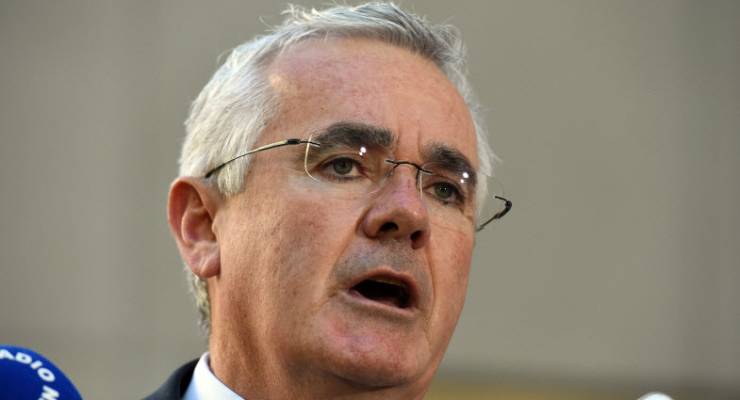
Whistleblowers have received a rare win after Parliament voted to support a privileges committee ruling that communications between whistleblowers and MPs should be protected.
The decision relates to the Federal Court case brought on by gambling lobby group ClubsNSW against its former employee Troy Stolz, but sets a powerful precedent for all whistleblowers.
Stolz, a former ClubsNSW money-laundering compliance officer, spoke out against the sector’s alleged widespread failure to comply with money laundering laws last year. The lobby group is now suing him for breach of confidence after he spoke to the media and independent MP Andrew Wilkie about the sector’s alleged failures.
As part of its case it was seeking to obtain communication shared between Stolz and Wilkie.
But Parliament this morning voted to support a ruling of the privileges committee, which said the House should intervene in the court case to stop privileged information being handed over.
“The committee is satisfied that parliamentary privilege is likely to attach to some of the documents in question,” deputy chair of the committee, Labor MP Patrick Gorman, said.
“The most appropriate course of action is for the Speaker, as the representative of the House, to take steps to ensure the House’s interests are represented before the courts.”
What does it mean?
The decision is a major blow for ClubsNSW, who were relying on the communication between Stolz and Wilkie for its case. But more importantly, it’s a big win for whistleblowers, as it sets in stone the fact that correspondence between a member of the public and a parliamentarian is privileged.
“It confirms the ability of Australians to speak up about wrongdoing to their elected representatives, in appropriate circumstances, safe in the knowledge that their communication is protected by parliamentary privilege,” human rights lawyer Kieran Pender said.
Wilkie welcomed the decision, saying it meant whistleblowers could now confidently bring their revelations to the attention of parliamentarians without fear they would be exposed in a court case.
“The protection of communication between the community and parliamentarians is vitally important,” he said.








Can’t believe it…..with so much sleaze, is this another deception? If it’s correct it really great news….
Finally some good news. Been despairing about the nature of human nature of late and we NEED whistleblowers as never before imo. Imagine if history of whistleblowing was a prerequisite of running for public office . . .
A whistleblower is (almost) always an employee who perceives an egregious conflict between organisation policies and rules and work instructions and actual management behaviours. The fact of a whistleblower is prima facie evidence of the failure of management. In the public sector the failure is even more disastrous because it speaks of subversion of the objective of public good.
Consider the example of Chelsea Manning. She observed the complete failure of her entire management hierarchy to observe and enforce the laws, rules and ordinances which were supposed to govern the operation of her organisation. Having attempted to bring these failures to the attention of her management without success she brought them to the attention of Wikileaks. For this act she was sentenced to thirty years imprisonment. For publicising these crimes Julian Assange faces a virtual death sentence. It is to these appalling lengths entrenched privilege will go to protect itself.
Power corrupts and corruption empowers.
Well done Troy and Andrew. Thank you for upholding that semblance of truth and democracy, so sadly diminished by today’s neoliberal nastiness.